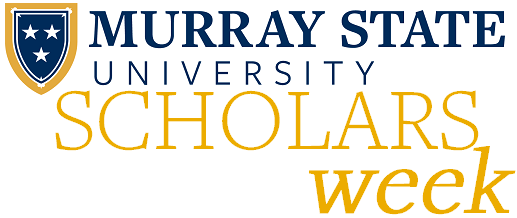
History Panel
Subscribe to RSS Feed (Opens in New Window)
| 2016 | ||
| Tuesday, April 19th | ||
| 2:00 PM |
Finding the Truth: An Examination into the Use of Rhetoric in Thucydides Eryn Pritchett, Murray State University Tennessee Room, Curris Center 2:00 PM - 3:30 PM For centuries, scholars have looked to Thucydides as truth--a factual and accurate account of the Peloponnesian War--due to his thorough use of critical analysis and logical deduction. Unlike his predecessor, Herodotus, Thucydides dodged the critical and literary analysis that has plagued Herodotus for years. However, in the past few decades historians realized that Thucydides is far more than facts on paper. This research project will show that Thucydides use of Athenian rhetoric transforms his work from that of historical accuracy into a "possession for all time," redefining the way other historians would construct their own narrative. (Thucydides, 1.22.1) Thucydides is clear throughout his entire history that he is planning to be remembered. In fact, the beginning of his book is filled with concern about his eternal resting place in the minds and hearts of those who will come after him. His work is not merely a collection of truths and date-to-date happenings during the Peloponnesian War, as once thought. This magnificent work was artfully crafted into something that would surpass fact and transcend truth; thanks to the rhetoricians who came before him. By examining his use of speeches, and the format of these orations as well as the book itself, we can see how influential Thucydides is to modern history. By treasuring the work of Thucydides for its rhetorical influence, his impact on historical writing can be better understood. |
|
|---|---|---|
| 2:00 PM |
Kunstler at the Courthouse: What Happens When Sixties Activism and Small Town Politics Collide? Wesley S. Bolin, Murray State University Tennessee Room, Curris Center 2:00 PM - 3:30 PM William Kunstler (1919-1995) called himself a "radical lawyer" and came to national prominence through his controversial work defending everyone from the Mississippi Freedom Riders, Martin Luther King, Angela Davis, and the "Chicago Seven" to Lenny Bruce, Jack Ruby, and John Gotti. In 1971 he was contracted to speak at Lovett Auditorium by Murray State's SGA as part of their "Insight" lecture series. Murray State's Board of Regents fought back against Kunstler's upcoming visit because of his political beliefs and the controversy that often accompanied his public appearances. Weeks of press coverage of the very public conflict between Murray State's administration and the student body followed. In the end members of the Murray community interceded and secured a location for Kunstler to speak - not on the stage of Lovett Auditorium but instead on Murray's Court Square. Kunstler's visit to Murray is a fascinating incident which brings to light issues of academic freedom, the relationship between "town and gown," and the perspective of a small, rural college town on one of the most iconic and infamous figures of 1960s and 1970s activism. |
|
| 2:00 PM |
Weight of the World: United States involvement in the Bosnian Crisis and the Bosnian Genocide Tracey Newport, Murray State University Tennessee Room, Curris Center 2:00 PM - 3:30 PM Following the collapse of the Soviet Union, states behind the Iron curtain underwent a change from communist nations. The founder of one such state, Josep Tito, died in 1980. While the Soviet Union stood the republic of Yugoslavia stayed together as a nation. Once the Soviet Union collapsed it did not take long for Yugoslavia to fall into chaos. The cleavages in the society became apparent as different nationalistic ideologies emerged with several different parts of the nation declaring independence from Yugoslavia. During this time Serbian nationalism grew in the various portions of Yugoslavia that had broken off as they sought to create a Serbian nation. The violence that erupted during this crisis lead to genocidal massacres of the Bosniak Muslims in the former territories of Yugoslavia. The crisis that unfolded became one of the earliest tests for America in their dominant international role as the sole great power of the world. America’s response to the Bosnian reflected their unwillingness to fully accept the mantle of the sole great power in the world. After 45 years of working against communist influences in the world, the United States fatigue from their international policy hampered their resolve in addressing the situation unfolding in the former Yugoslavian states. Because of the fatigue from 45 years of perpetual military readiness and reluctance to accept the role as sole supreme power in the world; the United States actions to halt the massacres in the former Yugoslavia came as tepid and apathetic response until the United states fully accepted their role as the sole supreme power. |
|
| Thursday, April 21st | ||
| 4:30 PM |
Transnational Influences Of Early Jesuit Scholars and Explorers in the New World from 1560-1700 Lydia K. Biggs Ms., Murray State University South Lobby, Waterfield Library 4:30 PM - 6:00 PM |
|
